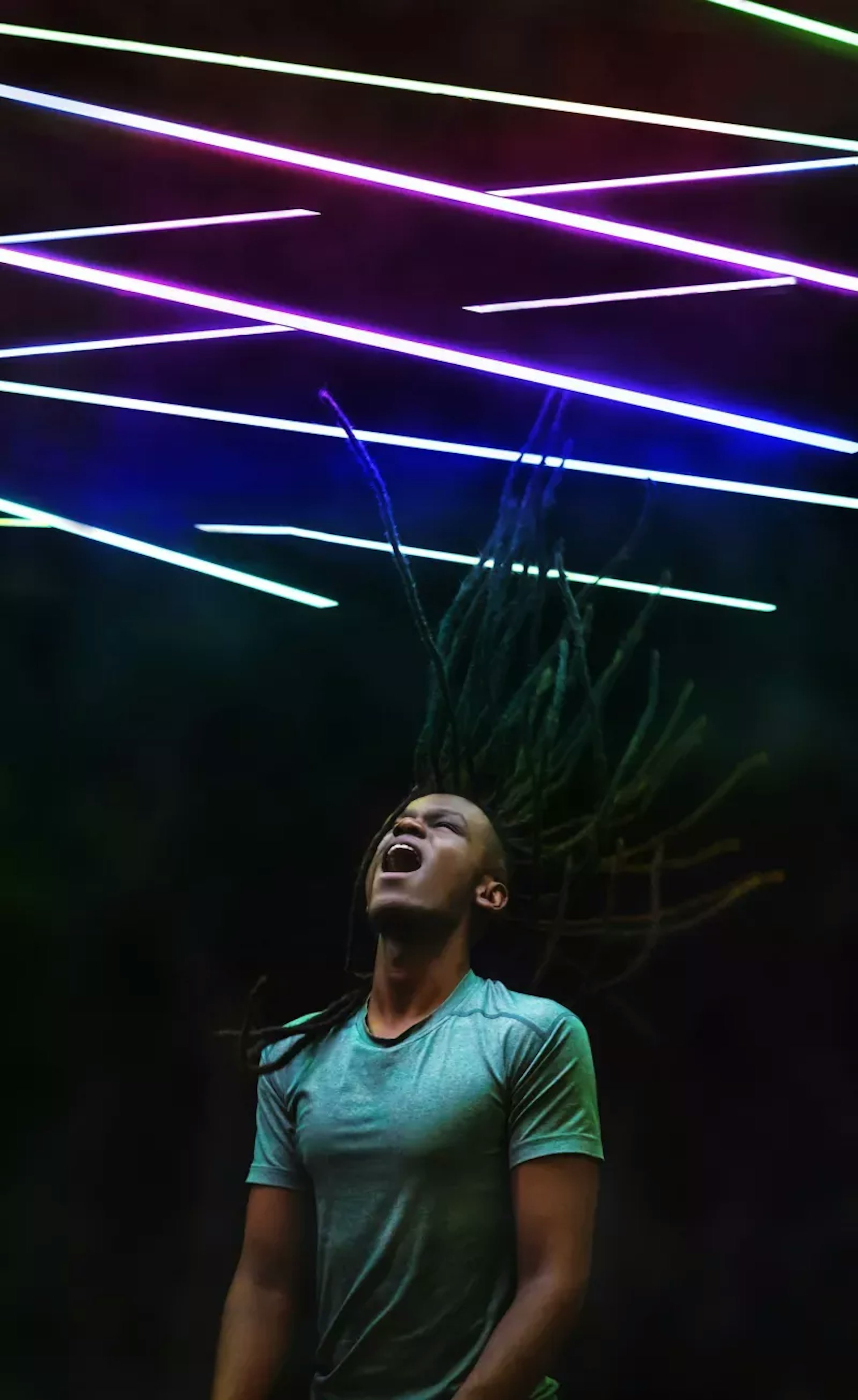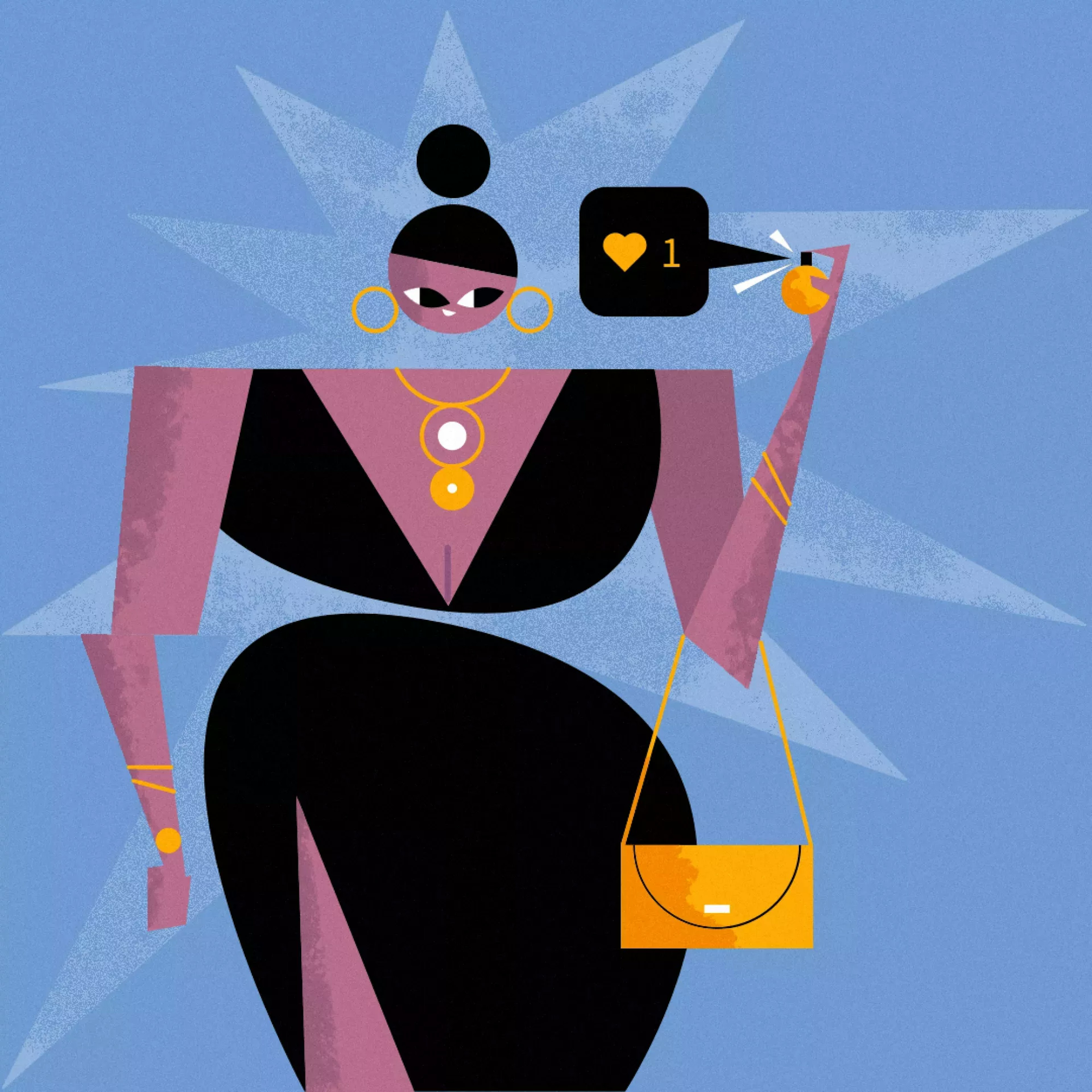
The luxury industry and influencers: a winning combination
Campaigns
4 min
From Léontine Parolini
We'll never stop saying it, but influencer marketing has become an essential part of any brand's communication strategy. There are many reasons why working with an influencer is beneficial for a company, whatever the sector. Whether it's to raise awareness, improve brand image, build credibility, reach a specific customer segment (e.g. with an interest in sport or aged between 15 and 25) or sell a service or product. In short, this style of communication has many advantages, and many brands have understood this.
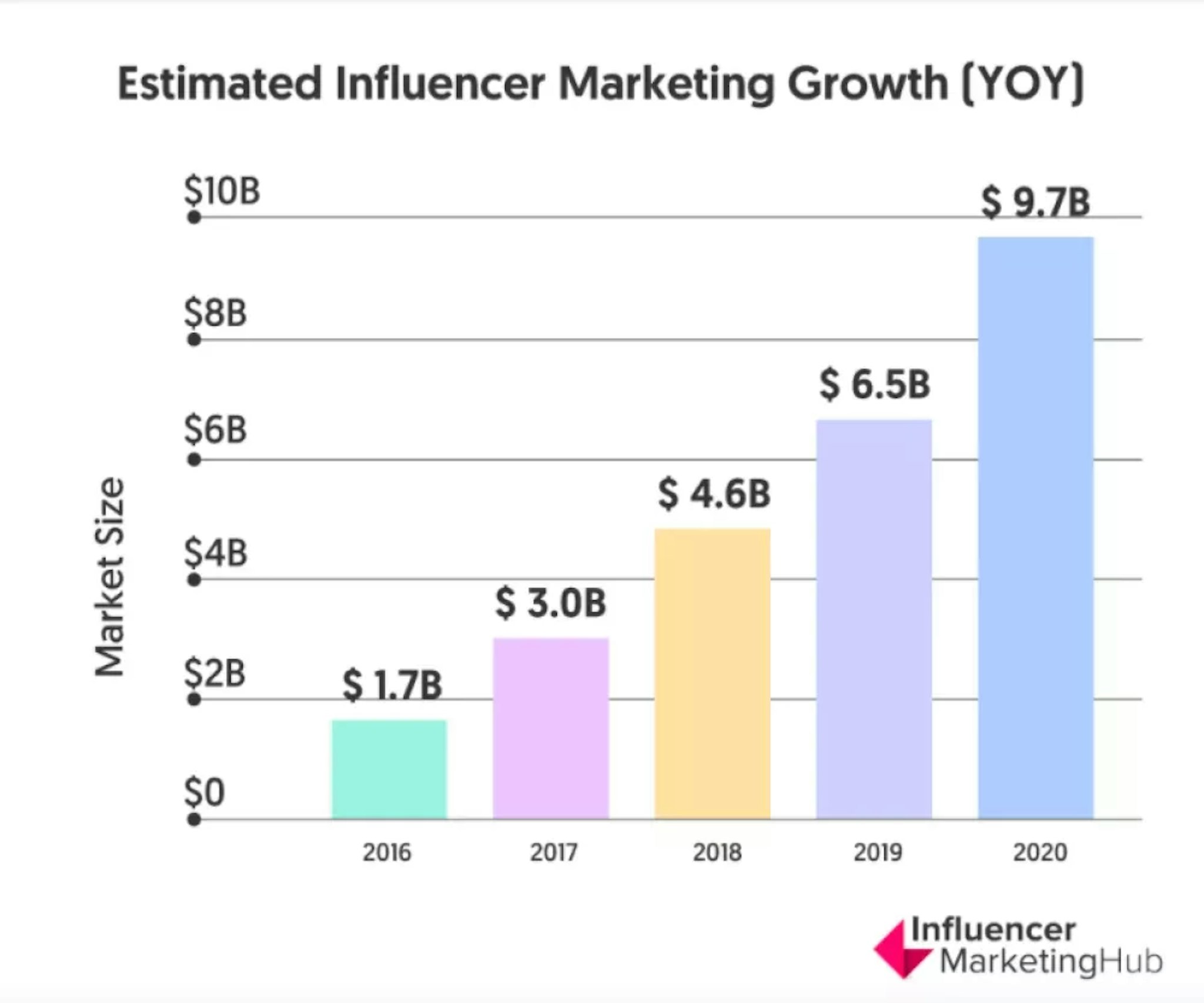
Influencer marketing has been more than a success story in 2020, and the figures are there to prove it: a 57% increase in the reach of collaborations on social networks according to the Klear study, or market share growth that has almost doubled every year since 2016 (according to the Influencer Marketing Hub report).
But then, what about companies in the luxury industry?
Digital transition in the luxury sector:
In the world of digital transition, the luxury industry is not known for being a pioneer when it comes to digital marketing. Nevertheless, like any other sector, the high-end segment has also had to adapt its communication strategies. The challenge for the luxury sector in its digital transition is to maintain its top-of-the-range, personalised in-store service. Historically, luxury consumers were looking for product quality, brand status and heritage. Over time, however, they have come to want more. Whether from a technical or emotional point of view. Brands therefore need to offer customers the same level of experience when they visit the company's website.
A number of factors have pushed this industry to accelerate its digital transition, including an Asian clientele that is highly advanced in terms of digital technology, a change in purchasing habits for luxury consumers, and the recent economic and health crisis of COVID-19. All these factors have forced companies to rethink their sales strategies.
Today, according to a study by Mckinsey, "nearly 80% of luxury purchases are influenced by digital technology". Many consumers use social networks to find out about influencers before making a purchase, and then share their experience with others on the internet.
Several major brands have been more responsive than others, such as Gucci, which has been a leader in this digital transformation. The brand's strategy was to focus on millennials by working with influencers. Dolce Gabbana has also created collections with major stars and micro-influencers. In another example, Swiss luxury watchmaker Hublot named Kylian Mbappé brand ambassador in 2018.
From influencer to ambassador
The big names in luxury have always had ambassadors in the image of their brand. These ambassadors were often very well known but did not make influencing their profession. Today, some companies have taken the plunge and hired influencers to represent them. This allows them to enter into a long-term relationship with an authentic influencer who shares their values. This approach avoids any collaboration with potential 'fake' influencers who have only one desire: to obtain paid partnerships without any sincerity. Appointing an influencer as a brand ambassador gives a company greater credibility. The content creator will begin to incorporate the brand they are working with into their publications many times over, and may even sell the brand's merits completely spontaneously.
The growing market share of millennials:
According to a study on forecasts for the luxury sector between now and 2025 (carried out by Boston Consulting Group (BCG) and Altagamma), Generation Z's market share will continue to grow. Representing just 4% in 2019, it will have doubled in just 1 year. Back in 2017, in an interview with François-Henri Pinault (Chairman and CEO of Kering, Gucci's parent company), he said that "almost 50% of Gucci's sales came from millennials".
The characteristic of young people is that they want to show themselves, to communicate through their social networks, to show who they are, what they do, what they like or what they buy. Very active on social networks, they follow many content creators and are strongly influenced by them. Forbes even states: "They are the dominant generation using social media and the most likely to shop online. This group is shaping the future of how we do business".
Influencers and luxury brands:
The influencer who has pioneered collaborations with major luxury brands is undoubtedly Italian Chiara Ferragni. She shares her daily life and her passion for fashion on Instagram. It's not unusual to see her dressed with brands such as Louis Vuitton or Chanel. With an audience of over 22 million on Instagram, from all over the world and mainly in the 18-34 age group, she is the perfect muse for brands.
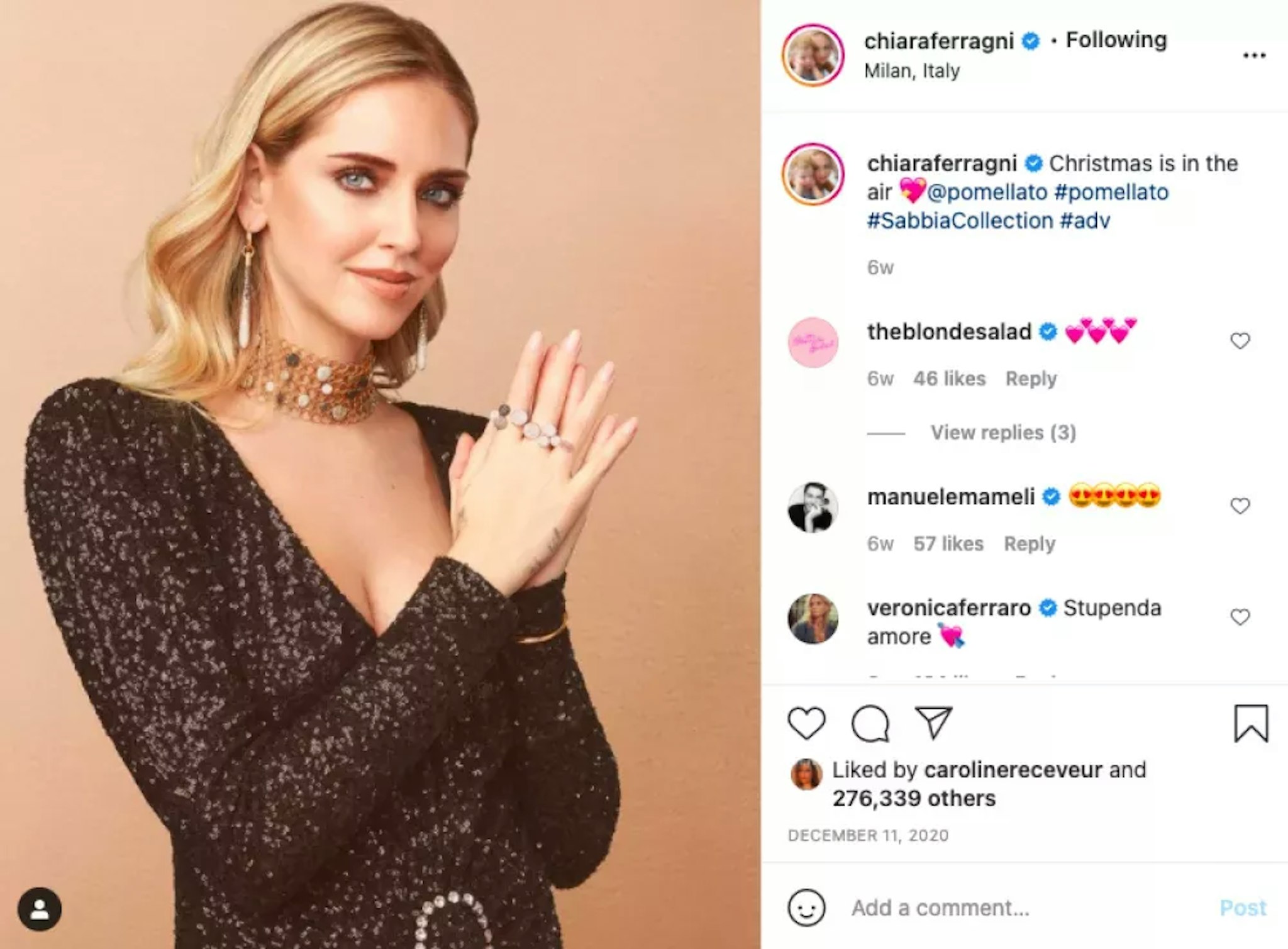
Another example is Zendaya, Lancôme muse since 2019. A wise choice for the perfume brand, which is promoting a collaboration with a young star of generation Z, known for her many battles against social and racial injustice (VOX article).
On the French-speaking side, how could we not mention the rising star of social networks in recent years, who made a big splash in 2020, Léna Mahfouf, aka Léna Situations. Passionate about fashion and the world of luxury ever since she was a little girl, this youtuber began by studying the field before moving into content creation. Léna knows the codes of social networks inside out, and is known for her authenticity and commitment to the fight against racism and slutshaming. She frequently collaborates with major luxury brands such as Balmain, Miu Miu and Dior. The great House of Dior invited her to discover the Dior couture workshops, which she was quick to present in a YouTube video. The biggest brands have also called her to be in the front row during the spring/summer 2021 shows (YouTube video). Most recently, Léna was promoting the Paris Fashion Week shows for the autumn/winter 2021-2022 menswear collection on her Instagram stories.
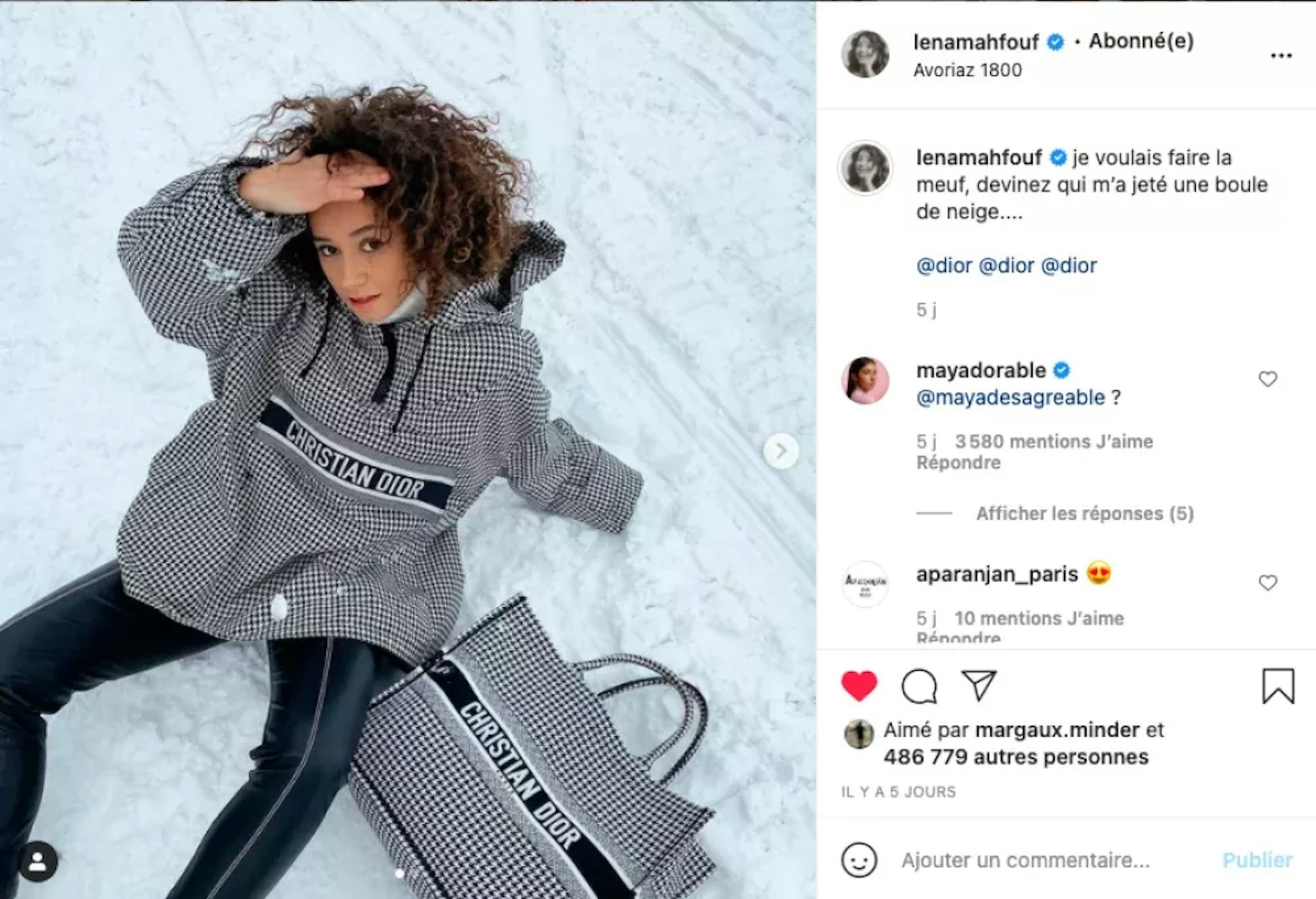
So there's a real trend for major luxury brands to work with influencers. However, it is still important to choose the right influencer in line with the brand's values and what it wants to communicate.
Despite the fact that the luxury goods industry is somewhat behind in its use of digital tools, the advantages of influencer marketing for this sector are clear to see. It allows them to rejuvenate their image, add credibility and, above all, reach a large community of potential (future) buyers with rapid control of the reach on social networks. Of course, all the while following the codes of this type of marketing in order to avoid mistakes.

